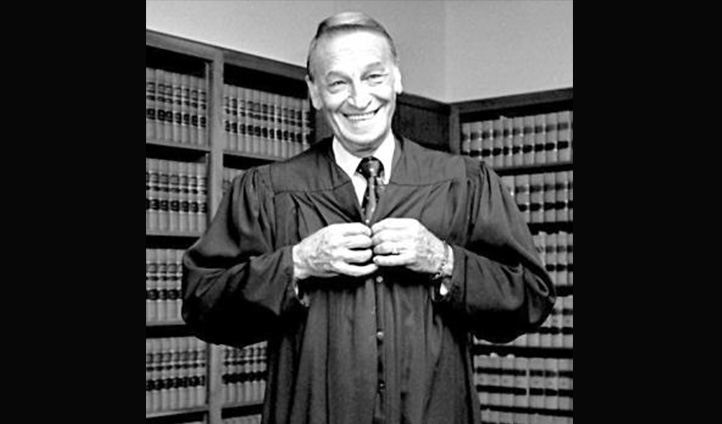Judge Harry Claiborne Impeached for Tax Evasion

Harry E. Claiborne, a judge on the U.S. District Court for the District of Nevada, was impeached and removed from office on charges of income tax evasion in 1986. It was the first time that a judge had been impeached in more than five decades.
Legal Career of Harry Claiborne
Harold Claiborne was born in 1917 in McRae, Arkansas. He obtained his law degree from Cumberland University and was admitted to the Arkansas bar in 1942. After serving in the United States Army in World War II, Claiborne launched a successful law practice in Las Vegas, Nevada. He became a prominent defense attorney whose high-profile clients included Frank Sinatra, Judy Garland, and mobster Bugsy Siegel.
On July 25, 1978, Claiborne was nominated by President Jimmy Carter to fill the seat on the United States District Court for the District of Nevada vacated by Bruce R. Thompson.
In 1980, Claiborne was named chief judge of the U.S. district court and held that position until his impeachment.
Impeachment Proceedings for Harry Claiborne
In 1984, Judge Claiborne became the first sitting Federal judge in the U.S. history to be found guilty of a felony when he was convicted of filing false income tax returns.
Prosecutors alleged that the federal judge failed to pay taxes on $106,000 in income he received in 1979 and 1980 for legal services performed prior to becoming a judge. Claiborne ultimately served 17 months of a two-year sentence before his release in 1987.
Judge Claiborne maintained his innocence, arguing that the charges were the result of a vendetta by federal prosecutors whom he ruled against in his courtroom. When Claiborne refused to resign after his conviction, the U.S. House of Representative began impeachment proceedings. Claiborne was subsequently impeached by the U.S. House of Representatives by a 406-to-0 vote. The four articles of impeachment included charges of tax evasion and bringing “disrepute” on the Federal court system.
Instead of the full Senate serving as a High Court of Impeachment, the Senate established a 12-member panel to conduct the trial. Relying on a never-before-used Senate rule adopted in 1935, the committee examined evidence, heard testimony, and presented its findings to the full Senate. During closing arguments, Claiborne’s counsel unsuccessfully argued that the use of a trial committee was unconstitutional. The full Senate voted convict Claiborne, marking the first time the Senate tried and convicted a federal official who had already been convicted in a criminal court. Claiborne was removed from office on October 9, 1986.
For a full list of all Federal Judges that have been impeached please visit our Impeachment of Federal Judges page.
Previous Articles
SCOTUS Rules State Can’t Immunize Parties from Federal Civil Liability
by DONALD SCARINCI on January 29, 2026
In John Doe v. Dynamic Physical Therapy, LLC, 607 U.S. ____ (2025) the U.S. Supreme Court held that...
Supreme Court to Address Racial Discrimination in Jury Selection
by DONALD SCARINCI onWhile the U.S. Supreme Court has concluded oral arguments for the year, it continues to add cases t...
Supreme Court Halts Deployment of National Guard to Chicago
by DONALD SCARINCI on
In Trump v. Illinois, 607 U.S. ____ (2025), the U.S. Supreme Court refused to stay a district court...
The Amendments
-
Amendment1
- Establishment ClauseFree Exercise Clause
- Freedom of Speech
- Freedoms of Press
- Freedom of Assembly, and Petitition
-
Amendment2
- The Right to Bear Arms
-
Amendment4
- Unreasonable Searches and Seizures
-
Amendment5
- Due Process
- Eminent Domain
- Rights of Criminal Defendants
Preamble to the Bill of Rights
Congress of the United States begun and held at the City of New-York, on Wednesday the fourth of March, one thousand seven hundred and eighty nine.
THE Conventions of a number of the States, having at the time of their adopting the Constitution, expressed a desire, in order to prevent misconstruction or abuse of its powers, that further declaratory and restrictive clauses should be added: And as extending the ground of public confidence in the Government, will best ensure the beneficent ends of its institution.





